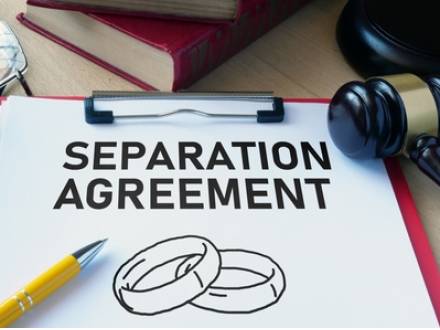Recent Blog Posts
Can Back Child Support Be Forgiven in Illinois if the Child Is Grown?
Posted on July 25, 2025 in Child Support
 When a child turns 18 or graduates from high school, child support typically ends. However, what does this mean for an unpaid balance? In Illinois, you will likely have to continue paying. Back child support, also called "arrears," remains legally enforceable even after the child becomes an adult. A Wheaton, IL child support attorney can help you understand your rights and explore options for resolving these debts.
When a child turns 18 or graduates from high school, child support typically ends. However, what does this mean for an unpaid balance? In Illinois, you will likely have to continue paying. Back child support, also called "arrears," remains legally enforceable even after the child becomes an adult. A Wheaton, IL child support attorney can help you understand your rights and explore options for resolving these debts.
Is There a Statute of Limitations on Child Support Enforcement in Illinois?
Illinois law does not limit how long the state or a parent can collect unpaid child support. According to 750 ILCS 5/505(g-5), if child support is still unpaid when the child reaches maturity, the obligation becomes a judgment by law and continues until paid in full. This means that enforcement actions, such as wage garnishment or tax refund interception, can occur decades later. In addition, 750 ILCS 5/510(d) confirms that judgments for unpaid support do not expire and may be collected at any time. There is no automatic forgiveness just because a child becomes an adult.
Continue Reading ››
Can a Parent Be Legally Required To Pay College Expenses in Illinois?
Posted on July 21, 2025 in Finances and Divorce
 In Illinois, courts can require a parent to help pay for their child’s college expenses, even after the child turns 18 and outside of child support payments. This often comes as a surprise. If your child is preparing for college, it is important for you to understand your legal responsibilities and how decisions about who pays for what are made. A Wheaton, IL parental responsibilities lawyer can help you navigate these issues and protect your financial interests.
In Illinois, courts can require a parent to help pay for their child’s college expenses, even after the child turns 18 and outside of child support payments. This often comes as a surprise. If your child is preparing for college, it is important for you to understand your legal responsibilities and how decisions about who pays for what are made. A Wheaton, IL parental responsibilities lawyer can help you navigate these issues and protect your financial interests.
What Expenses Can the Judge Order Parents To Pay?
Under Illinois law, specifically 750 ILCS 5/513, the court has the authority to order one or both parents to contribute to a child’s college costs. These costs are not limited to just tuition. A judge may also order payment for the following:
Continue Reading ››
Can I Get Guardianship of My Grandchildren in Illinois?
Posted on July 17, 2025 in Child Custody
 Life can sometimes bring unexpected changes that leave children without their parents’ full care. In those moments, grandparents often step in to help, and guardianship could offer stability, safety, and a secure home environment. To learn more about your rights as a grandparent, talk to a Wheaton, IL grandparents’ rights lawyer. Your legal representative can help you understand your options.
Life can sometimes bring unexpected changes that leave children without their parents’ full care. In those moments, grandparents often step in to help, and guardianship could offer stability, safety, and a secure home environment. To learn more about your rights as a grandparent, talk to a Wheaton, IL grandparents’ rights lawyer. Your legal representative can help you understand your options.
What Are the Guardianship Laws in Illinois?
Illinois law allows a non-parent, such as a grandparent, to petition the court to become a child’s legal guardian when the parents are unable or unwilling to care for the child. Under 755 ILCS 5/11-5, the court will appoint a guardian if it finds it necessary for the child’s well-being. Typically, the court will look at whether the parents have voluntarily surrendered custody, known as parental responsibilities in Illinois, or whether there is evidence of neglect, abuse, or absence. Whatever the judge decides in your case will be based on what is in the best interests of your grandchildren.
Continue Reading ››
Do I Have to Split My Business in an Illinois Divorce?
Posted on July 11, 2025 in Asset Division
 Businesses are considered property and can be subject to division in an Illinois divorce. However, that is only if the business is characterized as marital property. Illinois is an equitable distribution state. Unlike in a community property state, marital assets in Illinois are divided based on what is fair rather than equal. Several factors can influence whether or how your business is divided. A Wheaton, IL divorce lawyer can help you understand your rights and protect your business interests.
Businesses are considered property and can be subject to division in an Illinois divorce. However, that is only if the business is characterized as marital property. Illinois is an equitable distribution state. Unlike in a community property state, marital assets in Illinois are divided based on what is fair rather than equal. Several factors can influence whether or how your business is divided. A Wheaton, IL divorce lawyer can help you understand your rights and protect your business interests.
Is a Business Always Marital Property in Illinois?
A business is not automatically considered marital property in Illinois. Under Section 503 of the Illinois Marriage and Dissolution of Marriage Act, marital property includes assets and debts that you obtain during the marriage. It does not matter how those assets are titled. Non-marital property can include anything acquired before the marriage. However, gifts and inheritances are commonly excluded, unless they end up commingled with marital assets. If you have a valid premarital agreement under 750 ILCS 10/, commonly called a prenup, you may have addressed how to divide property during divorce.
Continue Reading ››
When Do I Need Court Approval in Illinois To Move With My Child?
Posted on July 10, 2025 in Alimony/Spousal Support
 In general, if you are planning to move a significant distance or out of state, you and your co-parent will likely take the case to court. Illinois law specifies certain distances that constitute a relocation. Consider how the statutes govern these cases, and talk to an experienced Wheaton, IL child custody attorney about your case to ensure you follow all the required procedures.
In general, if you are planning to move a significant distance or out of state, you and your co-parent will likely take the case to court. Illinois law specifies certain distances that constitute a relocation. Consider how the statutes govern these cases, and talk to an experienced Wheaton, IL child custody attorney about your case to ensure you follow all the required procedures.
How Far Can a Parent Move With a Child Without Court Permission in Illinois?
The right of a parent to move with a child is governed by Section 609.2 of the Illinois Marriage and Dissolution of Marriage Act (IMDMA). Whether a parent needs court approval depends on how far the proposed move would take the child from their current home. The law is designed to balance a parent’s need to relocate with the child’s best interests.
Continue Reading ››
How Do I Transition From Legal Separation to Divorce in Illinois?
Posted on July 04, 2025 in Divorce
 Transitioning from a legal separation to divorce can feel like a big step, both legally and emotionally. In Illinois, knowing how the process works is essential for protecting your rights and planning for the future. A Wheaton, IL divorce lawyer will walk you through the legal requirements and help you update any agreements to better suit your current situation.
Transitioning from a legal separation to divorce can feel like a big step, both legally and emotionally. In Illinois, knowing how the process works is essential for protecting your rights and planning for the future. A Wheaton, IL divorce lawyer will walk you through the legal requirements and help you update any agreements to better suit your current situation.
Can You File for Divorce After a Legal Separation in Illinois?
Being legally separated in Illinois does not close the door on divorce. Under 750 ILCS 5/402(c), either spouse can file for divorce while legally separated if they meet the requirements. These conditions are outlined in the Illinois Marriage and Dissolution of Marriage Act. It states that you or your spouse must have lived in Illinois for at least 90 days and must be able to prove "irreconcilable differences." Put simply, Section 401 of the act wants you to show that the problems in your marriage are so big that you cannot fix them. If trying to stay together would not be in the best interests of your family, you likely have irreconcilable differences.
Continue Reading ››
Can I Get Emergency Custody in Illinois?
Posted on June 30, 2025 in Child Custody
 If you are concerned about your child’s immediate safety, you likely have questions about what you can do to act quickly and protect them. Illinois law provides a way for parents to seek emergency custody, known as an emergency motion for parental responsibilities, in serious situations. A Wheaton, IL child custody attorney can help you understand the legal process and walk you through the steps for filing a motion.
If you are concerned about your child’s immediate safety, you likely have questions about what you can do to act quickly and protect them. Illinois law provides a way for parents to seek emergency custody, known as an emergency motion for parental responsibilities, in serious situations. A Wheaton, IL child custody attorney can help you understand the legal process and walk you through the steps for filing a motion.
What Is an Emergency Motion for Parental Responsibilities?
Illinois law 750 ILCS 5/602.7 refers to child custody as "the allocation of parental responsibilities," which includes decision-making authority and parenting time. When a parent believes a child is at risk of physical or emotional harm, the parent can file an emergency motion and request that the court temporarily change a parental responsibilities order.
Continue Reading ››
Can High-Net-Worth People Use Collaborative Divorce in Illinois?
Posted on June 26, 2025 in Collaborative Law
 While traditional litigation might seem like the more reasonable avenue to divorce for complex financial cases, collaborative divorce offers a great alternative for high-asset couples in Illinois. The core principles of collaborative law, including open communication, mutual respect, and a commitment to out-of-court settlement, are well-suited for couples who can cooperate and reason through the divorce process.
While traditional litigation might seem like the more reasonable avenue to divorce for complex financial cases, collaborative divorce offers a great alternative for high-asset couples in Illinois. The core principles of collaborative law, including open communication, mutual respect, and a commitment to out-of-court settlement, are well-suited for couples who can cooperate and reason through the divorce process.
If you have questions about how collaborative divorce can work in your situation, an experienced Wheaton, IL collaborative divorce lawyer can explain the process. The approach allows for a more nuanced and creative division of assets, often leading to solutions that a judge may not order.
How Does Collaborative Divorce Handle Complex Assets in Illinois?
Illinois follows the principle of equitable distribution under 750 ILCS 5/503, which requires marital property to be divided fairly. This becomes particularly important when dealing with assets, such as business interests, intellectual property, private equity investments, and real estate portfolios. In a collaborative setting, parties can share a neutral business valuation expert to assess complex assets. The team may also include a forensic accountant to trace commingled funds or hidden assets in a high-net-worth estate.
Continue Reading ››
Does Illinois Law Require Mediation for Post-Divorce Disputes?
Posted on June 22, 2025 in Mediation
 The most common reason to revisit a divorce agreement in Illinois is to address issues involving the allocation of parental responsibilities, commonly known as custody. The court can order co-parents to participate in mediation for disputes over child relocation and modification to the parenting plan. If you have questions about modifying elements of your divorce agreement, a Wheaton, IL mediation attorney can help you understand when mediation is required and how to prepare for it.
The most common reason to revisit a divorce agreement in Illinois is to address issues involving the allocation of parental responsibilities, commonly known as custody. The court can order co-parents to participate in mediation for disputes over child relocation and modification to the parenting plan. If you have questions about modifying elements of your divorce agreement, a Wheaton, IL mediation attorney can help you understand when mediation is required and how to prepare for it.
Is Mediation Ever Mandatory After a Divorce in Illinois?
Illinois law encourages the use of mediation in cases involving child custody. The Illinois Marriage and Dissolution of Marriage Act (IMDMA) specifically states, under 750 ILCS 5/602.10, that the court can order mediation in any case involving the allocation of parental responsibilities, whether during or after a divorce. This statute gives judges broad discretion. In many counties, including DuPage County, mediation is a standard part of how parenting disputes are handled post-decree.
Continue Reading ››
Can Separate Property Become Marital Property in Illinois?
Posted on June 17, 2025 in Asset Division
 As you navigate the division of property phase of divorce, you may find the characterization of assets surprising at times. You will have separate and marital property, but under certain circumstances, you may have a third type of property – commingled – that started as separate and became marital property. Complex asset division issues require a knowledgeable Wheaton, IL divorce attorney who can apply the complicated Illinois laws and ensure you have the best chance at a fair decree.
As you navigate the division of property phase of divorce, you may find the characterization of assets surprising at times. You will have separate and marital property, but under certain circumstances, you may have a third type of property – commingled – that started as separate and became marital property. Complex asset division issues require a knowledgeable Wheaton, IL divorce attorney who can apply the complicated Illinois laws and ensure you have the best chance at a fair decree.
What Is Commingled Property in an Illinois Divorce?
Under Illinois law, property is characterized as marital or non-marital, also known as separate property during the asset division component of the divorce process. Marital property generally includes anything acquired during the marriage and is subject to fair division and distribution. Separate property includes assets that belonged to one spouse before the marriage or were acquired as a gift or inheritance during the marriage.
Continue Reading ››







 When a child turns 18 or graduates from high school,
When a child turns 18 or graduates from high school,  In Illinois, courts can require a parent to help pay for their child’s college expenses, even after the child turns 18 and outside of
In Illinois, courts can require a parent to help pay for their child’s college expenses, even after the child turns 18 and outside of  Life can sometimes bring unexpected changes that leave children without their parents’ full care. In those moments, grandparents often step in to help, and
Life can sometimes bring unexpected changes that leave children without their parents’ full care. In those moments, grandparents often step in to help, and  Businesses are considered property and can be
Businesses are considered property and can be  In general, if you are planning to move a significant distance or out of state, you and your co-parent will likely take the case to court. Illinois law specifies certain distances that constitute a
In general, if you are planning to move a significant distance or out of state, you and your co-parent will likely take the case to court. Illinois law specifies certain distances that constitute a  Transitioning from a
Transitioning from a  If you are concerned about your child’s immediate safety, you likely have questions about what you can do to act quickly and protect them. Illinois law provides a way for parents to seek emergency custody, known as an emergency motion for
If you are concerned about your child’s immediate safety, you likely have questions about what you can do to act quickly and protect them. Illinois law provides a way for parents to seek emergency custody, known as an emergency motion for  While traditional litigation might seem like the more reasonable avenue to divorce for complex financial cases,
While traditional litigation might seem like the more reasonable avenue to divorce for complex financial cases,  The most common reason to revisit a divorce agreement in Illinois is to address issues involving the allocation of parental responsibilities, commonly known as custody. The court can order co-parents to participate in
The most common reason to revisit a divorce agreement in Illinois is to address issues involving the allocation of parental responsibilities, commonly known as custody. The court can order co-parents to participate in  As you navigate the
As you navigate the 
